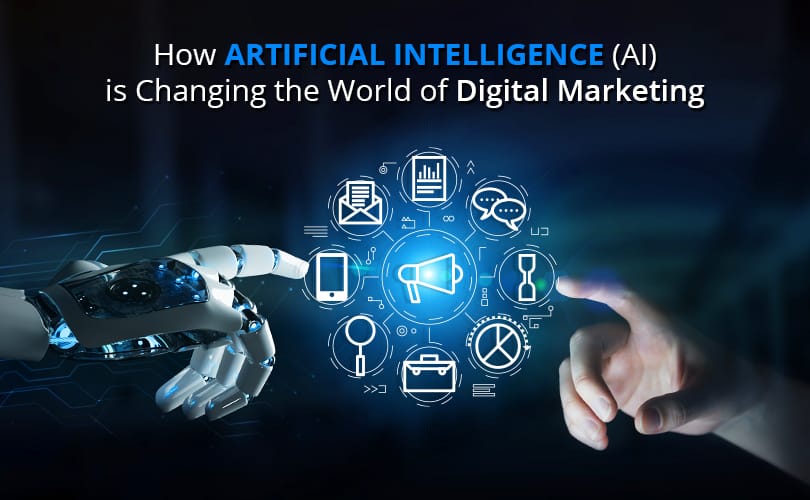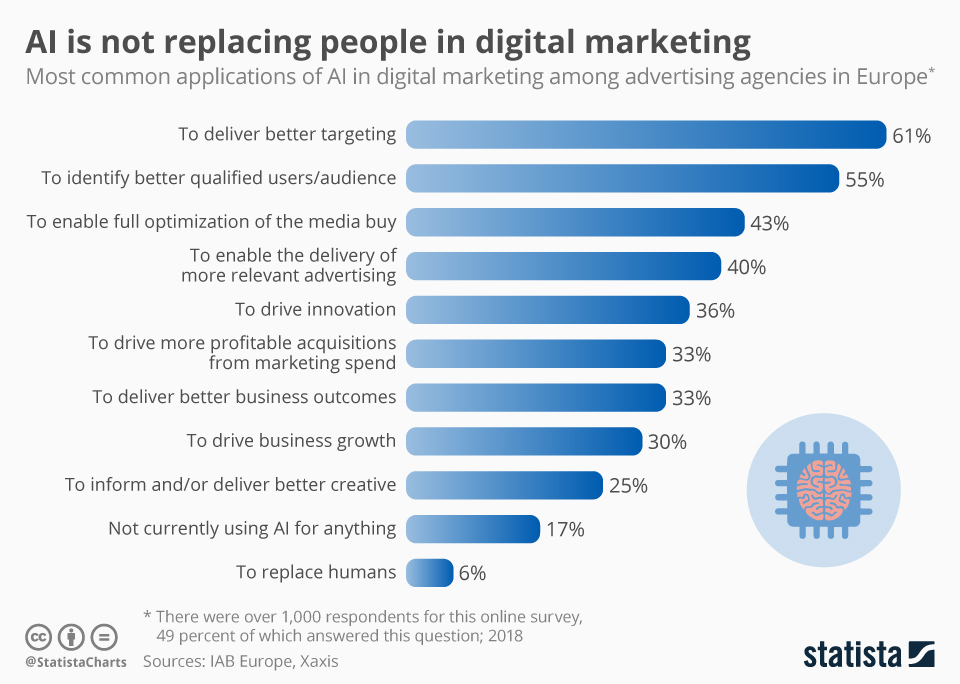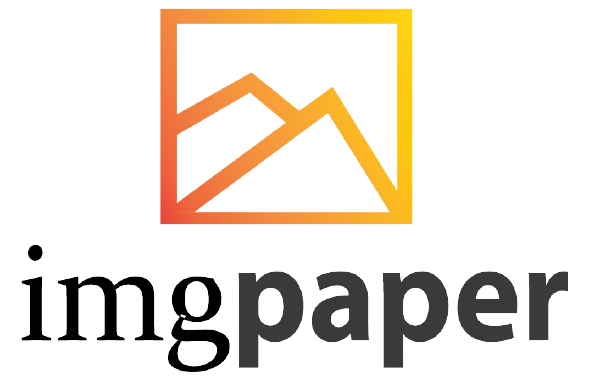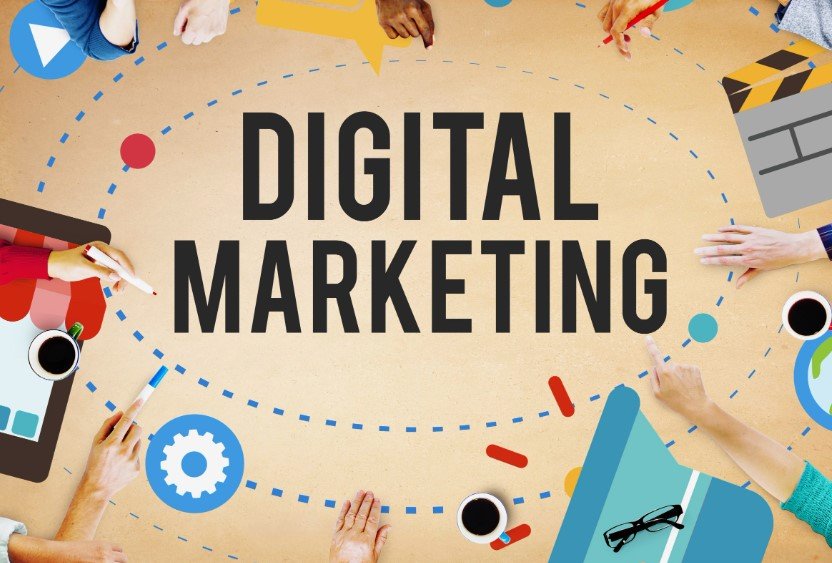Artificial intelligence (AI) is used in digital marketing to predict customer behavior and forecast the outcomes of marketing campaigns by analyzing historical data. With the help of AI, companies can automate routine tasks and improve keyword research and content optimization.
AI can also provide actionable insights for better audience targeting and understanding customer behavior. While AI may not replace digital marketers, it can increase efficiency and allow humans to focus on the creative process. As the use of AI in digital marketing continues to grow, businesses need to understand its potential benefits and incorporate it into their marketing strategies.
Table of Contents
Artificial Intelligence in Digital Marketing

The Rise Of AI in Digital Marketing
Artificial Intelligence in Digital Marketing is a game-changer in the marketing industry. The Rise of AI in Digital Marketing has revolutionized the way businesses interact with their customers and conduct marketing campaigns.
What Is AI, and Why Is It Important for Digital Marketing?
Artificial Intelligence (AI) refers to the simulation of human intelligence in machines that are programmed to think and learn like humans. In digital marketing, AI plays a crucial role in analyzing consumer behavior, predicting trends, and personalizing marketing strategies. AI enables marketers to leverage data-driven insights, automate repetitive tasks, and enhance customer experiences, leading to higher engagement and conversions.
AI And The Future Of Digital Marketing
The integration of AI in digital marketing is poised to shape the future of the industry. AI-powered tools and technologies empower marketers to deliver highly targeted campaigns, optimize content for search engines, and provide personalized recommendations to consumers. As AI continues to evolve, it will enable marketers to gain deeper insights into consumer preferences, streamline marketing operations, and drive more impactful and efficient marketing strategies.
AI-powered digital Marketing Techniques
Artificial Intelligence in Digital Marketing and AI-Powered Digital Marketing Techniques…
Personalization And Recommendation Engines
Artificial Intelligence enables personalization and recommendation engines in digital marketing. By leveraging AI algorithms, marketers can analyze customer data to deliver personalized content, product recommendations, and offers. This enhances user experience and increases engagement. Additionally, AI-powered recommendation engines can effectively segment audiences based on their preferences and behaviors, allowing marketers to tailor their marketing strategies accordingly. This level of personalization helps boost conversion rates and customer satisfaction.
Chatbots And Customer Service
AI-driven chatbots play a significant role in enhancing customer service in digital marketing. These intelligent virtual assistants are capable of providing instant responses to customer queries and offering personalized recommendations. Moreover, AI-powered chatbots can simulate human-like conversations, providing a seamless customer experience. They contribute to improved customer engagement, retention, and ultimately, overall brand perception. Additionally, AI-driven chatbots can handle a large volume of inquiries simultaneously, leading to efficient customer service operations.
Voice Search Optimization
Artificial Intelligence is instrumental in voice search optimization for digital marketing. With the increasing prevalence of voice-enabled devices, AI algorithms can analyze and interpret natural language queries. Marketers can leverage AI to optimize their content for voice search, ensuring that their brand is visible to voice search users. Additionally, AI enables the extraction of valuable insights from voice search data, allowing marketers to understand user intent and behavior, and tailor their strategies accordingly. Voice search optimization powered by AI is essential for brands to stay competitive in the evolving digital landscape.
Predictive Analytics And Lead Scoring
AI facilitates predictive analytics and lead scoring, revolutionizing digital marketing strategies. By harnessing AI algorithms, marketers can analyze vast datasets to predict future trends and customer behavior. This enables proactive decision-making and the implementation of targeted marketing initiatives. Furthermore, AI-powered lead scoring empowers marketers to identify high-potential leads based on their interactions and behaviors, allowing for personalized nurturing and more effective conversion strategies. Predictive analytics and lead scoring driven by AI are essential for enhancing marketing ROI and driving sustainable business growth.
The Benefits Of AI in Digital Marketing
Artificial Intelligence in Digital Marketing has revolutionized the way businesses reach and engage with their target audience. The Benefits of AI in Digital Marketing are vast, offering improved customer experience, increased efficiency, better targeting, and real-time data analysis and insights.
Improved Customer Experience
AI enhances customer experience by personalizing interactions, providing tailored recommendations, and offering 24/7 customer support. It analyzes customer data to understand preferences and behaviors, leading to customized marketing strategies.
Increased Efficiency And Cost Savings
AI automates repetitive tasks such as scheduling, data analysis, and content creation, saving time and resources for businesses. This increased efficiency allows marketers to focus on strategic planning and creativity.
Better Targeting And Roi
AI enables precise audience targeting by analyzing large datasets to identify potential customers and deliver relevant content. This improved targeting leads to higher conversion rates and maximized return on investment for marketing campaigns.

Real-time Data Analysis And Insights
With AI, marketers can analyze real-time data to gain immediate insights into campaign performance, consumer behavior, and market trends. This real-time analysis helps businesses make data-driven decisions for agile marketing strategies.
Challenges And Limitations Of AI in Digital Marketing
Artificial Intelligence (AI) has revolutionized the field of digital marketing, enabling businesses to analyze vast amounts of data and make data-driven decisions. However, like any technological advancement, AI also comes with its own set of challenges and limitations. In this blog post, we will explore some of the key challenges and limitations of AI in digital marketing.
Data Privacy And Security Concerns
As AI relies heavily on data, one of the major concerns is data privacy and security. With the increasing amount of personal and sensitive data being collected, stored, and analyzed, there is a risk of data breaches and unauthorized access. Businesses need to ensure that they have robust security measures in place to protect customer data and comply with privacy regulations. Additionally, there is a need for transparency in AI algorithms and processes to build trust with customers.
Lack Of Human Touch And Emotional Connection
While AI can analyze data and provide insights, it lacks the human touch and emotional connection that are essential in digital marketing. Building relationships with customers requires empathy, understanding, and emotional intelligence, which AI may struggle to replicate. Businesses need to strike a balance between AI automation and human interaction to provide personalized and engaging experiences for customers.
The Need For Skilled Professionals And Training
Implementing AI in digital marketing requires skilled professionals who understand both the technology and the marketing strategies. There is a shortage of professionals with the necessary expertise in AI, which poses a challenge for businesses looking to leverage AI in their marketing efforts. Organizations must invest in training and upskilling their teams to ensure they can effectively utilize AI tools and technologies.
The Risk Of Overreliance On AI
While AI can enhance efficiency and productivity, there is a risk of overreliance on AI in digital marketing. Relying solely on AI algorithms and automation can lead to a lack of creativity and innovation. Businesses need to strike a balance between AI-powered automation and human creativity to deliver unique and compelling marketing campaigns.
AI Integration In Digital Marketing Strategies
Artificial Intelligence in Digital Marketing is revolutionizing the way businesses approach marketing strategies. By integrating AI technologies into their digital marketing efforts, companies can gain valuable insights, automate processes, and enhance customer experiences. In this blog post, we will explore the various ways AI can be integrated into digital marketing strategies to drive success.
Identifying AI Opportunities In Your Marketing Strategy
When it comes to identifying AI opportunities in your marketing strategy, it is important to consider your specific business goals and target audience. AI can be used to analyze large amounts of data, identify patterns, and make predictions, allowing you to personalize your marketing campaigns and deliver targeted messages to the right audience at the right time. Additionally, AI can help automate repetitive tasks such as data analysis, lead scoring, and content creation, freeing up your team to focus on more strategic initiatives. By leveraging AI in your marketing strategy, you can gain a competitive edge and maximize your ROI.
Developing An AI Implementation Plan
Developing an AI implementation plan involves several key steps. First, you need to identify the specific areas of your marketing strategy where AI can be applied. This could include customer segmentation, content personalization, predictive analytics, or chatbot implementation, among others. Once you have identified the areas, you can start exploring AI solutions that align with your business goals and budget. It is important to choose AI tools and platforms that are user-friendly and provide robust analytics and reporting capabilities. Finally, you need to define a timeline for implementation and allocate resources accordingly. By following a structured implementation plan, you can ensure a smooth integration of AI into your marketing strategy.
Testing And Measuring AI Performance
Testing and measuring AI performance is crucial to understanding its impact on your marketing strategy. It is essential to set clear objectives and key performance indicators (KPIs) before implementing AI. This will help you track and measure the success of your AI initiatives. Regularly monitor and analyze the data generated by AI tools to identify areas of improvement and make necessary adjustments to optimize performance. Additionally, A/B testing can be used to compare the performance of AI-driven campaigns against traditional campaigns, providing valuable insights for future optimizations. By continuously testing and measuring AI performance, you can refine your marketing strategy and drive better results.
Evaluating And Adjusting AI Strategies
Evaluating and adjusting AI strategies is an ongoing process that requires continuous monitoring and analysis. Regularly review the performance metrics and KPIs to evaluate the effectiveness of your AI-driven campaigns. Identify any areas of underperformance or missed opportunities and make adjustments accordingly. This could involve refining your AI algorithms, optimizing targeting criteria, or modifying messaging based on customer feedback. It is important to stay agile and adapt your AI strategies as market trends and customer preferences evolve. By evaluating and adjusting your AI strategies, you can ensure that your digital marketing efforts are always optimized for success.

Examples Of AI-powered digital Marketing
Artificial Intelligence (AI) has become an indispensable part of the digital marketing world. It has revolutionized the way brands communicate with their customers, and the way they collect, analyze, and use data. One of the most significant advantages of AI is its ability to predict customer behavior, which enables brands to provide personalized experiences to their target audience. In this blog post, we will discuss some of the most innovative examples of AI-powered digital marketing.
Netflix’s Personalized Recommendations
Netflix is an excellent example of how AI can be used to provide personalized recommendations to customers. The platform uses a sophisticated algorithm that analyzes user behavior, such as viewing history and ratings, to recommend content that is tailored to each user’s preferences. This not only improves the user experience but also encourages users to spend more time on the platform, which ultimately leads to increased revenue for Netflix.
Sephora’s Virtual Artist
Sephora is a cosmetics brand that has leveraged AI to provide its customers with a virtual makeup try-on experience. Sephora’s Virtual Artist uses facial recognition technology to map a customer’s face and apply makeup virtually, allowing them to see how different products would look on them before making a purchase. This has not only increased customer engagement but has also led to a significant increase in sales.
Domino’s Anyware Ordering
Domino’s Pizza has taken advantage of AI to make ordering pizza as easy as possible for its customers. The brand has implemented an AI-powered voice recognition system that allows customers to place an order simply by speaking to their device. This has made the ordering process more convenient and has reduced the likelihood of human error, resulting in higher customer satisfaction and increased sales.
Starbucks’ Voice-activated Ordering
Starbucks is another brand that has used AI to improve the customer experience. The coffee chain has implemented a voice-activated ordering system that allows customers to place an order by speaking to their device. This has not only made the ordering process more convenient but has also reduced wait times, resulting in higher customer satisfaction and increased sales.
The Future Of AI in Digital Marketing
Artificial Intelligence (AI) has revolutionized the digital marketing landscape, offering innovative solutions to enhance customer experience, optimize marketing strategies, and drive business growth. This article explores the advancements in AI technology, its integration with other technologies, its role in shaping consumer behavior, and the importance of human-centered AI design in the digital marketing realm.
Advancements In AI Technology
The rapid advancements in AI technology have empowered digital marketers to analyze vast amounts of data with greater precision and efficiency. AI algorithms are now capable of identifying patterns, trends, and insights that were previously inaccessible, enabling marketers to make data-driven decisions and personalize customer experiences at scale. Furthermore, AI-powered tools such as chatbots, predictive analytics, and natural language processing have streamlined customer interactions, improved lead generation, and enhanced customer engagement.
Integration Of AI with Other Technologies
AI’s integration with other technologies, such as big data analytics, machine learning, and the Internet of Things (IoT), has extended its capabilities in digital marketing. By leveraging these synergies, businesses can derive deeper insights into consumer behavior, create hyper-targeted campaigns, and deliver personalized content across multiple channels. Additionally, AI-driven marketing automation platforms have simplified complex workflows, optimized ad targeting, and improved return on investment (ROI) for marketing initiatives.
The Role Of AI in Shaping Consumer Behavior
AI plays a pivotal role in shaping consumer behavior by enabling marketers to understand, predict, and influence purchasing decisions. Through advanced consumer sentiment analysis, AI-powered tools can decipher customer preferences, sentiments, and purchase intent from diverse data sources, including social media, online reviews, and clickstream data. By harnessing these insights, businesses can tailor their offerings, messaging, and promotions to resonate with their target audience, thereby enhancing customer satisfaction and loyalty.
The Importance Of Human-centered AI Design
The importance of human-centered AI design in digital marketing cannot be overstated. As AI continues to augment marketing strategies, it is imperative to prioritize ethical considerations, transparency, and user privacy. By adopting a human-centric approach to AI development, marketers can build trust with consumers, mitigate biases, and ensure that AI technologies enhance, rather than replace, human creativity and empathy in delivering compelling brand experiences.
Conclusion
Artificial intelligence has revolutionized digital marketing by predicting customer behavior, automating routine tasks, and providing actionable insights. With AI, marketers can analyze user behavior, optimize content, and target audiences better. Although AI will not replace digital marketers, it will enhance their efficiency and allow them to focus on the creative process.
As the future of digital marketing unfolds, AI will continue to play a crucial role in helping brands understand customer needs and drive successful campaigns. Embracing AI in digital marketing strategies is essential for businesses to stay ahead in this ever-evolving landscape.

